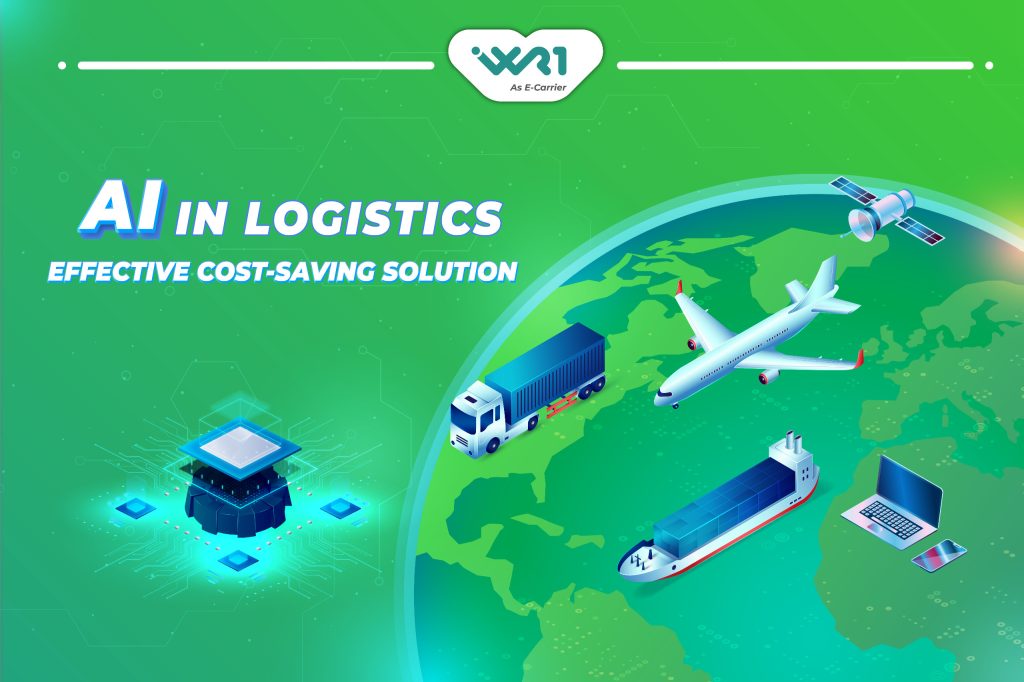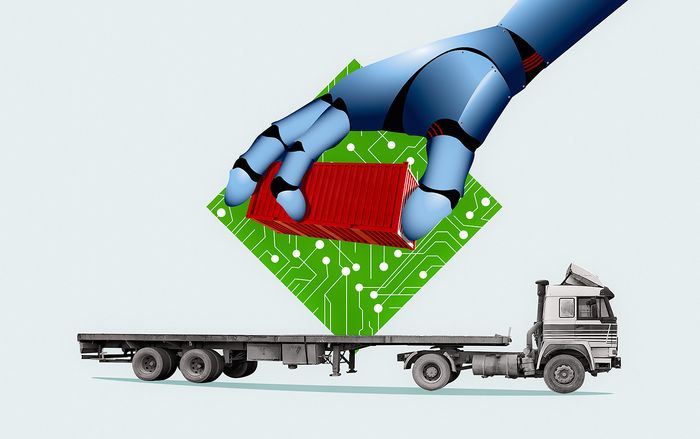Implementing AI automation in the supply chain can help businesses save on logistics costs by 15%, reduce inventory levels by 35%, and increase service levels by up to 65%. A more notable advantage of this technology is its ability to swiftly synthesize and analyze data, enabling businesses to have a clearer understanding in supply chain dynamics, manage orders in real-time, and make timely decision resolutions. Let’s explore with WR1 through the article below.

Eliminate Manual Process
Research from McKinsey found that early adopters that AI automation in supply chains has helped businesses save on logistics costs by 15%, reduce inventory levels by 35%, and increase service levels by up to 65%. For logistics service providers, the initial aim of AI usage was to develop chatbots to assist customers in booking shipments and tracking cargo status. Currently, businesses are also in the process of enhancing operations by integrating technology into most logistics activities.
According to Celonis Co-CEO Alex Rinke, using AI allows us to proactively tell customers about their shipment volume and the need to consolidate them in the same trip. This can reduce manual tasks by 80% and help customers operate more efficiently by lowering shipping costs and greenhouse gas emissions, while also optimizing delivery times. Previously, Mars used to assess factors like weather manually to determine which shipments to combine and whether to use refrigerated trucks for transportation.
He also added that another company is using Celonis’ AI tool to cross-reference contract terms with supplier invoices to ensure no expenses are overlooked. Previously, this was a time-consuming process where employees had to manually check contracts.
The use of AI is the latest move in the long-term efforts of logistics companies to integrate machine learning tools into their supply chain management operations.
Building a real-time responsive chatbot
However, AI still has its limitations. Experts note that AI tools perform only based on the data they’ve been trained on and sometimes may provide incorrect answers. Matthias Winkenbach, director of research for the Massachusetts Institute of Technology’s Center for Transportation and Logistics, suggests that given these limitations, initial AI tools should be used in relatively isolated areas of the supply chain.
In doing so, if any mishaps occur, your level of risk will be limited. Therefore, you won’t lose your most important customers,” Winkenbach said.
Winkenbach suggests that eventually AI technology could be used for broader tasks such as order management and supplier tracking.
Uber Freight, a startup logistics service provider that manages real-time freight shipments, has developed a chatbot that allows shippers to ask questions about their shipment activities.
Businesses using Uber Freight’s chatbots can ask about which delivery routes are commonly delayed and assess Uber’s service level compared to industry competitors. However, this information is often challenging for employees to interpret and respond to quickly for customers. Uber Freight is focusing on building recommendation capabilities for shippers to help them reduce costs and speed up shipping.

FourKites’ chatbot can answer questions about which shipments are delayed, helping companies make quick decisions. German pharmaceutical and agricultural conglomerate Bayer is using FourKites’ chatbot to cope with disruptions in maritime shipping in the Red Sea.
At present, AI technology is understood as Augmented Intelligence rather than Artificial Intelligence. AI systems will continue to play a crucial role in driving the entire supply chain process in the future. Early adoption will help us grasp and enhance these AI models, thus altering the technology race within the industry.



 Tiếng Việt
Tiếng Việt

